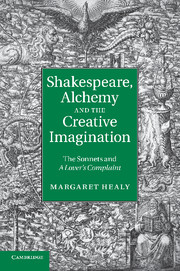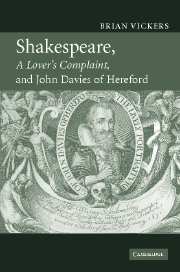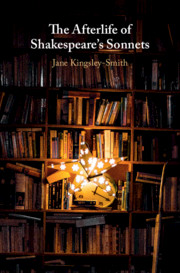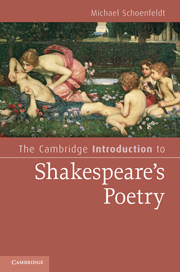Shakespeare, Alchemy and the Creative Imagination
Shakespeare's Sonnets and A Lover's Complaint constitute a rich tapestry of rhetorical play about Renaissance love in all its guises. A significant strand of this is spiritual alchemy: working the 'metal' of the mind through meditation on love, memory work and intense imagination. Healy demonstrates how this process of anguished soul work – construed as essential to inspired poetic making – is woven into these poems, accounting for their most enigmatic imagery and urgency of tone. The esoteric philosophy of late Renaissance Neoplatonic alchemy, which embraced bawdy sexual symbolism and was highly fashionable in European intellectual circles, facilitated Shakespeare's inscription of an interior drama of a desiring mind creating poetry. Arguing that Shakespeare's incorporation of alchemical textures throughout his late works is indicative of an artistic stance promoting religious toleration and unity, this book sets out a crucial new framework for interpreting the 1609 poems, and transforms our understanding of Shakespeare's art.
- Proposes a new understanding of Shakespeare sonnets and A Lover's Complaint, seeing them as linked inner dramas about the creative mind
- Clearly explains fashionable late Renaissance alchemy and its role in creative writing
- Positions Shakespeare as an artist of religious toleration and unity, opening a new window of understanding onto Shakespeare's beliefs
Reviews & endorsements
"Healy displaysconsiderable erudition in a broad array of topics, including Neoplatonism, esoteric, as well as practical alchemy, theological allegory, and much of the critical tradition of interpreting these poems."
-Katherine Eggert,University of Colorado
"...treats Shakespeare's poetry as an allegory of the alchemical processes of soul making." --Recent Studies in the English Renaissance
Product details
July 2014Paperback
9781107637740
272 pages
229 × 152 × 15 mm
0.37kg
9 b/w illus.
Available
Table of Contents
- Introduction
- 1. Alchemical contexts
- 2. Lovely boy
- 3. The Dark Mistress and the art of blackness
- 4. A Lover's Complaint by William Shakespeare
- 5. Inner looking, alchemy and the creative imagination
- 6. Conclusion: Shakespeare's poetics of love and religious toleration.





